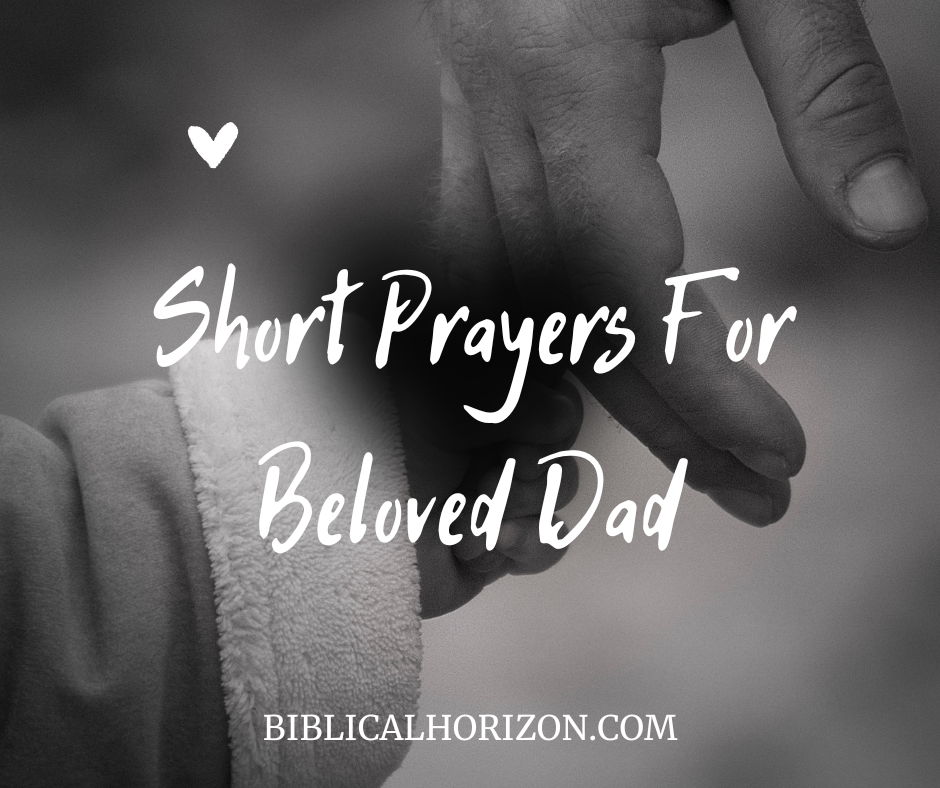The Gateway to Understanding God’s Way
Psalm 1 stands as the magnificent entrance to the entire Book of Psalms, much like a grand doorway that reveals the treasures within. This powerful chapter establishes the fundamental contrast between the righteous and the ungodly, serving as a timeless guide for understanding what it truly means to live a blessed life according to divine principles.
The meaning of Psalm 1 extends far beyond its six verses. Scholars believe this psalm was strategically placed as an introduction to the Psalter during the post-exilic period, when Israel was rebuilding both their physical nation and spiritual identity. Who wrote Psalm 1 remains debated among biblical scholars, but its anonymous authorship actually strengthens its universal message – these principles apply to all believers regardless of their background.
What does Psalm 1 mean in its essence? It presents a clear choice between two paths: the way of righteousness that leads to prosperity and blessing, and the path of wickedness that leads to destruction. This psalm doesn’t merely describe moral behavior; it reveals the consequences of actions based on our fundamental life choices.
The literary structure of this psalm is masterful in its simplicity. It follows a chiastic pattern that emphasizes the central message: delight in God’s law produces genuine happiness and lasting success. Unlike modern self-help philosophies, Psalm 1 grounds true prosperity in divine guidance rather than human effort alone.
As we explore this foundational text, we’ll discover practical wisdom for navigating modern challenges while maintaining biblical principles. From social media influences to career decisions, the ancient wisdom of Psalm 1 provides remarkably relevant advice for contemporary believers seeking to live righteously in an increasingly complex world.
Textual Analysis: Breaking Down Psalm 1 Verse by Verse
Verse 1: The Blessed Man’s Avoidances
The opening declaration, “Blessed is the man,” immediately establishes the psalm’s focus on authentic happiness derived from moral conduct. The Hebrew word “ashrei” (blessed) appears 45 times in the Psalms and describes a state of inner contentment and divine favor that transcends circumstances.
What does Psalm 1:1 mean becomes clear when we examine the three progressive stages of moral compromise:
| Stage | Action | Description | Result |
|---|---|---|---|
| 1 | Walking in counsel of ungodly | Seeking advice from those who reject God | Initial influence |
| 2 | Standing in path of sinners | Becoming comfortable with sinful behavior | Gradual acceptance |
| 3 | Sitting in seat of scornful | Complete identification with mockers | Full participation |
This progression reveals how spiritual compromise rarely happens overnight. It begins with seemingly innocent exposure to ungodly counsel, progresses to comfortable association with sin, and culminates in active participation in mocking what is holy.
The contrast here is striking. While the world often measures success by external achievements, Psalm 1 begins by defining the righteous person through what they avoid rather than what they accomplish. This negative definition establishes the foundation for positive spiritual growth.
Verse 2: The Blessed Man’s Delights
The conjunction “But” creates a powerful contrast between avoidance and active engagement. Where verse 1 describes what the blessed person doesn’t do, verse 2 reveals their positive passion: “his delight is in the law of the Lord.”
The Hebrew concept of “law” (Torah) encompasses far more than legal regulations. It represents God’s complete instruction manual for life, including:
- Divine guidance for daily decisions
- Moral principles for relationships
- Spiritual truths for understanding God’s character
- Practical wisdom for navigating life’s challenges
Deep thinking (meditation) on God’s word “day and night” doesn’t suggest obsessive study but rather continuous awareness of divine principles. Like a musician who has practiced scales until they become natural, the righteous person has internalized God’s law until it becomes their default response to life situations.
Modern neuroscience confirms what Psalm 1 taught millennia ago: repetitive meditation on positive truths literally rewires the brain, creating new neural pathways that influence decision-making and emotional responses.
Verses 3-4: The Tale of Two Trees
The tree metaphor in Psalm 1:3 provides one of Scripture’s most vivid illustrations of spiritual prosperity. This comparison reveals four characteristics of the righteous:
The Righteous as a Tree:
- Planted by streams of water: Intentional positioning near life-giving resources
- Brings forth fruit in season: Productive output at appropriate times
- Leaves do not wither: Consistent vitality and endurance
- Prospers in all endeavors: Comprehensive success in life’s various dimensions
The streams of water represent continuous access to spiritual nourishment. Unlike trees that depend on irregular rainfall, this tree has constant access to life-sustaining resources. The righteous person who meditates on God’s law maintains steady spiritual health regardless of external circumstances.
Contrast this with the ungodly described as chaff – the worthless husks separated from grain during harvest. Chaff possesses several characteristics that illustrate spiritual worthlessness:
- No substance or weight
- Easily blown away by wind
- Provides no nourishment
- Destined for burning
This agricultural imagery would have been immediately understood by ancient audiences. The winnowing process involved throwing threshed grain into the air, allowing wind to separate valuable grain from useless chaff. The ungodly lack the spiritual weight and substance to withstand life’s inevitable storms.
Verses 5-6: The Final Judgment
The psalm concludes with ultimate consequences of actions. The ungodly cannot “stand in the judgment” – a reference to both present accountability and future divine evaluation. They also cannot remain “in the congregation of the righteous” because their fundamental way of life creates natural separation.
Verse 6 reveals divine oversight and authority: “The Lord knows the way of the righteous, but the way of the ungodly shall perish.” God’s knowledge here implies intimate care and protection, while the fate of the ungodly emphasizes the temporary nature of all paths that reject divine guidance.
Major Theological Themes and Their Applications
The Doctrine of Divine Blessing
What does Psalm 1 mean regarding God’s blessings? The psalm presents a theology of blessing that differs significantly from modern prosperity teachings. Biblical blessing encompasses:
Spiritual Prosperity vs. Material Success:
- Inner peace and joy regardless of circumstances
- Wisdom to make godly decisions
- Strength to endure difficulties
- Purpose and meaning in life’s challenges
- Eternal perspective on temporary situations
The tree metaphor suggests that the righteous experience comprehensive well-being, but this doesn’t guarantee freedom from hardship. Even healthy trees face storms, droughts, and seasonal changes. The promise is that those who delight in God’s law maintain spiritual vitality through all circumstances.
Historical examples include:
- Job’s faithfulness despite tremendous suffering
- Joseph’s integrity during years of slavery and imprisonment
- Daniel’s commitment while serving in pagan kingdoms
- Paul’s joy while imprisoned for the gospel
The Power of God’s Word
The emphasis on meditation reveals Scripture’s transformative power. Unlike Eastern meditation that empties the mind, biblical meditation fills the mind with divine truth. This process involves:
Practical Methods for Biblical Meditation:
- Memorizing key verses for constant recall
- Asking questions about the text’s meaning and application
- Praying through Scripture passages
- Journaling insights and personal applications
- Discussing biblical truths with other believers
The phrase “day and night” suggests integration of God’s law into all aspects of life. This doesn’t require constant formal study but rather maintaining awareness of divine principles during daily activities.
The Two Ways Philosophy
Psalm 1 presents life as a fundamental choice between two paths. This contrast appears throughout Scripture:
| The Righteous | The Ungodly |
|---|---|
| Delight in God’s law | Follow human counsel |
| Like a fruitful tree | Like worthless chaff |
| Prosper in all endeavors | Cannot stand in judgment |
| Known by the Lord | Their way perishes |
| Participate in congregation | Excluded from righteousness |
This binary choice doesn’t deny the complexity of life but rather clarifies the fundamental orientation that shapes all other decisions. Every choice either moves us toward God’s way or away from it.
Community and Separation
The psalm addresses the tension between righteousness and relationships. The righteous avoid the counsel of the ungodly while maintaining love for all people. This biblical balance involves:
- Choosing companions who encourage spiritual growth
- Maintaining witness to those who need Christ
- Setting boundaries that protect spiritual health
- Participating in communities that reinforce biblical values
The congregation of the righteous represents more than church attendance; it describes a community of people who share fundamental commitment to God’s way.
Historical and Cultural Context
Ancient Near Eastern Wisdom Traditions
Psalm 1 shares similarities with Egyptian and Mesopotamian wisdom literature, particularly the tree and water imagery. However, the Hebrew perspective uniquely emphasizes:
- Personal relationship with God rather than abstract principles
- Moral conduct based on divine law rather than social conventions
- Eternal consequences rather than merely temporal results
- Community responsibility alongside individual righteousness
Archaeological discoveries have revealed wisdom texts from Egypt and Babylon that use similar tree metaphors, but none connect human flourishing so directly to meditation on divine instruction.
Psalm 1’s Role in the Psalter
The strategic placement of Psalm 1 as the opening chapter introduces major themes that appear throughout the book:
- The contrast between righteous and wicked
- God’s oversight and care for His people
- The importance of God’s law in spiritual development
- Ultimate judgment and divine authority
- Blessing as the result of obedience
This psalm functions as a hermeneutical key for understanding the entire Psalter. When readers encounter psalms of lament, praise, or petition, they can interpret them through the lens of righteousness versus wickedness established in Psalm 1.
Post-Exilic Identity Formation
Following the Babylonian exile, Israel faced the challenge of rebuilding both national identity and spiritual commitment. Psalm 1 addressed this need by:
- Emphasizing Torah observance as the mark of true Israelites
- Providing clear criteria for community membership
- Establishing meditation on God’s law as daily practice
- Connecting individual righteousness to community participation
The emphasis on avoiding ungodly counsel was particularly relevant for Jews living among pagan neighbors. The psalm provided guidance for maintaining distinct identity while participating in broader society.
Practical Applications for Modern Believers
Choosing Your Influences
The opening verse’s warning about ungodly counsel has direct application to modern media consumption and relationship choices. Contemporary applications include:
Social Media and Digital Influences:
- Carefully curating social media feeds to include edifying content
- Limiting exposure to content that promotes values contrary to Scripture
- Following accounts that encourage spiritual growth and biblical thinking
- Recognizing how digital counsel shapes attitudes and behaviors
Friendship and Professional Relationships:
- Seeking mentors who demonstrate biblical wisdom
- Building friendships with people who encourage spiritual growth
- Maintaining witness to unbelievers while protecting spiritual health
- Choosing business partners and colleagues who share ethical values
The key is avoiding the progression from walking to standing to sitting in opposition to God’s way. This requires intentional choices about influences rather than passive acceptance of whatever enters our sphere.
Developing a Meditation Practice
What does Psalm 1 mean for daily spiritual disciplines? The emphasis on meditation “day and night” suggests integration of Scripture into regular routines:
Morning Meditation:
- Begin each day reading and reflecting on Scripture
- Pray through biblical passages for personal application
- Memorize verses that address current life challenges
- Ask God to bring His law to mind throughout the day
Evening Reflection:
- Review how biblical principles applied to daily decisions
- Identify areas where God’s counsel was needed but ignored
- Thank God for guidance received through His word
- Plan specific applications for tomorrow’s anticipated challenges
Continuous Awareness:
- Keep Scripture passages visible in work and home environments
- Use apps or reminders to prompt biblical reflection
- Discuss spiritual insights with family and friends
- Apply biblical principles to decision-making processes
Building Spiritual Resilience
The tree metaphor provides a powerful model for spiritual development. Like trees that develop deep root systems to access water sources, believers must cultivate deep thinking about spiritual truths to maintain success during difficult seasons.
Developing Deep Spiritual Roots:
- Regular Bible study that goes beyond surface reading
- Meditation on Scripture until it becomes part of natural thinking
- Prayer that seeks God’s guidance for specific life situations
- Fellowship with other believers who encourage spiritual growth
- Service opportunities that put faith into practical action
Finding Spiritual Nourishment:
- Identifying churches that teach biblical truth faithfully
- Reading books and resources that deepen scriptural understanding
- Participating in small groups focused on spiritual growth
- Seeking counsel from mature believers during decision-making
- Maintaining delight in God’s law through varied study methods
Understanding True Success
Psalm 1 redefines prosperity from a biblical perspective. While the world measures success through wealth, fame, and power, God measures it through:
Biblical Indicators of Prosperity:
- Joy and contentment regardless of circumstances
- Wisdom to make decisions that honor God
- Relationships that reflect God’s love and grace
- Character that demonstrates spiritual maturity
- Influence that encourages others toward righteousness
- Purpose that contributes to God’s kingdom work
The promise that the righteous will “prosper in whatever they do” doesn’t guarantee easy success but rather indicates that God works through dedicated believers to accomplish His purposes. This includes:
- Strength to persevere through difficulties
- Wisdom to learn from failures and setbacks
- Guidance to discover God’s calling and purpose
- Resources to meet genuine needs
- Opportunities to serve others effectively
Common Misconceptions and Clarifications
The Prosperity Gospel Error
Psalm 1 is often misused to support prosperity gospel teachings that promise material wealth in exchange for faith. However, the psalm’s meaning emphasizes spiritual rather than material blessing. Biblical prosperity includes:
- Peace with God through righteousness
- Wisdom for making godly decisions
- Strength to endure hardships faithfully
- Joy that transcends circumstances
- Purpose that extends beyond personal gain
The tree metaphor suggests health and productivity, not luxury and ease. Even fruitful trees face storms, seasons of dormancy, and pruning processes that promote long-term growth.
Legalism vs. Love of God’s Law
The emphasis on delight in God’s law must be understood properly. Psalm 1 describes a heart attitude of joy in divine guidance rather than legalistic rule-keeping. The difference includes:
Legalistic Approach:
- Views God’s law as burden to be endured
- Focuses on external compliance rather than heart transformation
- Seeks to earn God’s favor through perfect behavior
- Creates pride in personal righteousness
- Judges others based on rule-keeping ability
Biblical Approach:
- Finds delight and joy in God’s counsel
- Seeks heart transformation that produces natural obedience
- Recognizes grace as the foundation of relationship with God
- Maintains humility about personal righteousness
- Encourages others in spiritual growth
The righteous person described in Psalm 1 loves God’s law because it reveals God’s character and provides guidance for life. This love produces meditation and obedience that flow naturally from a transformed heart.
Isolation vs. Separation
The warning against ungodly counsel doesn’t promote isolation from unbelievers. Instead, it calls for wisdom in choosing primary influences while maintaining witness to those who need Christ. This balance involves:
Healthy Separation:
- Choosing close friends who encourage spiritual growth
- Seeking advice from biblically grounded counselors
- Participating in communities that reinforce biblical values
- Limiting exposure to influences that undermine faith
Continued Witness:
- Maintaining loving relationships with unbelieving family and friends
- Participating in community activities that serve others
- Demonstrating Christ’s love through practical service
- Sharing the gospel with those who are spiritually seeking
The goal is avoiding the counsel that leads away from God while demonstrating the joy and prosperity that come from following His way.
Conclusion: Living the Psalm 1 Life
Psalm 1 presents a clear choice that every person faces: the way of righteousness that leads to blessing and prosperity, or the path of the ungodly that leads to spiritual worthlessness and ultimate destruction. This ancient wisdom remains remarkably relevant for contemporary believers navigating complex modern challenges.
The psalm’s meaning extends beyond personal spiritual development to encompass community relationships, decision-making processes, and long-term life direction. The righteous person described here isn’t perfect but rather someone who has chosen to find delight in God’s law and meditate on divine guidance as a way of life.
Key Principles for Implementation:
- Choose influences carefully: Avoid the progressive compromise that begins with ungodly counsel
- Cultivate delight in Scripture: Develop joy in God’s law through regular meditation and study
- Build spiritual resilience: Like a tree planted by streams of water, maintain access to spiritual nourishment
- Embrace biblical prosperity: Understand success from God’s perspective rather than worldly standards
- Participate in righteous community: Engage with the congregation of the righteous while maintaining witness to others
The contrast between the righteous and the ungodly isn’t merely descriptive but prescriptive. It calls readers to examine their fundamental life orientation and make necessary adjustments to align with God’s way. The promise of blessing for those who choose righteousness provides hope and motivation for this challenging but rewarding path.
As we apply these principles, we discover that Psalm 1 offers more than moral instruction – it provides a roadmap for experiencing authentic happiness, lasting success, and meaningful prosperity that transcends temporal circumstances. The choice remains before us daily: will we walk in the counsel of the ungodly or find our delight in the law of the Lord?
The way of righteousness requires intentional commitment, but the consequences – both present and eternal – demonstrate the wisdom of choosing God’s path over any alternative. In a world filled with conflicting voices and competing values, Psalm 1 provides the foundational guidance needed to navigate life with divine wisdom and experience true blessing in all its dimensions.

Catherine Frank, founder of BiblicalHorizon.com, shares daily prayers and Bible verses to nurture spiritual growth. With a lifelong passion for scripture and prayer traditions, she creates accessible spiritual content that resonates with both seasoned believers and newcomers seeking divine connection.



